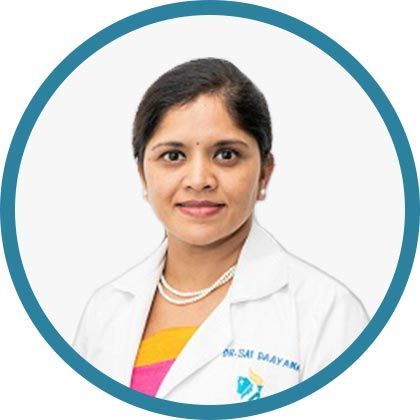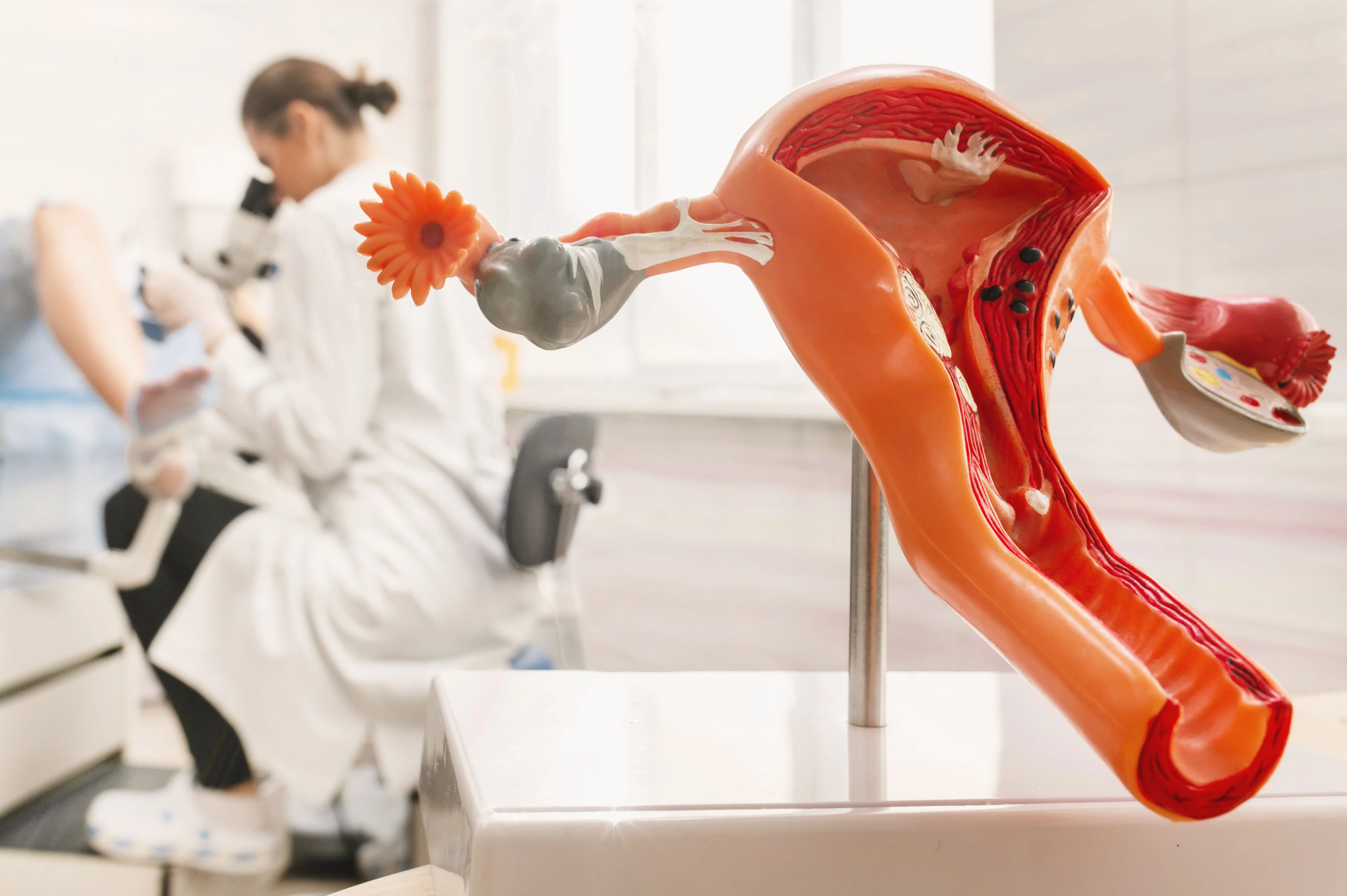Increased Risk Of Cancer After Total Hysterectomy
Does a total hysterectomy increase your risk of cancer? Learn how this surgery affects your long-term cancer risk and how to stay proactive about your health.

Written by Dr.Sonia Bhatt
Last updated on 13th Jan, 2026

Introduction
If you or a loved one has undergone a total hysterectomy—surgical removal of the uterus and cervix—you may have concerns about long-term health risks, including cancer. While a hysterectomy can be a life-saving or life-improving procedure for many women, it’s important to understand any potential risks, including whether it affects cancer risk later in life.
This article will explain what a total hysterectomy is, whether it increases cancer risk, and how you can stay proactive about your health.
What Is a Total Hysterectomy?
A total hysterectomy is a surgical procedure where the uterus and cervix are removed. Depending on the reason for surgery, the ovaries and fallopian tubes may also be removed, called a bilateral salpingo-oophorectomy.
Common Reasons for a Hysterectomy:
Uterine fibroids – These non-cancerous growths might cause significant pain or heavy bleeding
Endometriosis – A condition where tissue similar to the uterine lining grows outside the uterus
Chronic pelvic pain – Persistent discomfort that does not improve with other treatments
Uterine prolapse – When the uterus descends into the vaginal canal
Cancer or pre-cancerous conditions – Such as those involving the cervix, uterus, or ovaries
Consult Top Specialists for Personalised Health Advice
Does a Hysterectomy Increase Cancer Risk?
The answer depends on whether the ovaries were removed during the hysterectomy.
1. If Ovaries Are Removed (Oophorectomy)
Reduced risk of ovarian and fallopian tube cancer since these organs are gone.
Slightly increased risk of other cancers, such as colorectal or lung cancer, due to early menopause and hormonal changes.
No increased risk of uterine or cervical cancer since these organs are removed.
2. If Ovaries Are Kept
No increased risk of most cancers, but regular monitoring is still needed.
Ovarian cancer risk remains, so women should watch for symptoms like bloating, pelvic pain, or changes in bathroom habits.
What Types of Cancer Could Still Occur After Hysterectomy?
Even after a hysterectomy, some cancers may still develop, including:
1. Ovarian Cancer (if ovaries were not removed)
Symptoms: Bloating, pelvic pain, frequent urination, feeling full quickly.
Risk factors: Family history, genetic mutations (BRCA1/BRCA2).
2. Vaginal Cancer (rare but possible)
Symptoms: Unusual vaginal bleeding, pain during sex, pelvic discomfort.
Risk factors: Previous cervical cancer, HPV infection.
3. Breast Cancer (unrelated to hysterectomy but still a concern)
Risk factors: Family history, hormonal changes, lifestyle.
How to Lower Your Cancer Risk After Hysterectomy
Even if your uterus and cervix are removed, staying proactive about your health is key. Here’s what you can do:
1. Regular Check-ups & Screenings
Pelvic exams if ovaries remain
Mammograms for breast cancer screening
Colonoscopies especially if you had an oophorectomy
2. Healthy Lifestyle Choices
Eat a balanced diet rich in fruits, vegetables, and whole grains
Exercise regularly, at least 30 minutes a day can lower cancer risk
Avoid smoking and limit alcohol.
3. Hormone Replacement Therapy (HRT) Considerations
If ovaries were removed, discuss HRT with your doctor to manage menopause symptoms while balancing cancer risks.
4. Genetic Testing (if high-risk)
If you have a family history of ovarian or breast cancer, genetic testing, like BRCA testing, may be recommended.
When to See a Doctor
Consult your doctor if you experience:
Unexplained weight loss
Persistent bloating or abdominal pain
Unusual vaginal bleeding; extremely rare after total hysterectomy but should still be checked
Changes in bowel or bladder habits
Final Thoughts
A total hysterectomy is a common and often necessary procedure, but it’s natural to have concerns about long-term health effects. The good news is that most women do not have an increased cancer risk after hysterectomy, especially if the ovaries are kept. However, staying vigilant with regular check-ups and a healthy lifestyle can help you stay cancer-free.
If you have concerns about your risk or need guidance, consider booking a consultation with a specialist through Apollo 24|7 for personalised advice.
Consult Top Gynaecological Oncologists
Consult Top Specialists for Personalised Health Advice

Dr. Sreeparna Roy
Obstetrician and Gynaecologist
8 Years • MBBS , MS (OBSTETRICS & GYNAECOLOGY), Fellowship in Infertility, Endoscopy & Ultrasonography), Fellowship in Laparoscopy & Hysteroscopy,DRM
Kolkata
Dr Utsa Basu Clinic, Kolkata

Dr. Renuka Chandran
Obstetrician and Gynaecologist
30 Years • MBBS, MD, DGO, Masters in Advanced Ultrasound in Obs & Gynea
Bangalore
Apollo Clinic Bellandur, Bangalore

Dr Shaikat Gupta Director Surgical Onco
Surgical Oncologist
35 Years • MBBS (University Gold Medalist), MS, FRCSEd
Kolkata
Apollo Multispeciality Hospitals , Kolkata, Kolkata
(250+ Patients)
Dr. B Shravanthi Reddy
Radiation Specialist Oncologist
8 Years • MBBS, DNB(Radiation Oncology)
Manikonda Jagir
Apollo Clinic, Manikonda, Manikonda Jagir

Dr. Sai Lakshmi Daayana
Gynaecological Oncologist
18 Years • MBBS, MRCOG
Hyderabad
Apollo Hospitals Jubilee Hills, Hyderabad
(225+ Patients)
Consult Top Gynaecological Oncologists

Dr. Sreeparna Roy
Obstetrician and Gynaecologist
8 Years • MBBS , MS (OBSTETRICS & GYNAECOLOGY), Fellowship in Infertility, Endoscopy & Ultrasonography), Fellowship in Laparoscopy & Hysteroscopy,DRM
Kolkata
Dr Utsa Basu Clinic, Kolkata

Dr. Renuka Chandran
Obstetrician and Gynaecologist
30 Years • MBBS, MD, DGO, Masters in Advanced Ultrasound in Obs & Gynea
Bangalore
Apollo Clinic Bellandur, Bangalore

Dr Shaikat Gupta Director Surgical Onco
Surgical Oncologist
35 Years • MBBS (University Gold Medalist), MS, FRCSEd
Kolkata
Apollo Multispeciality Hospitals , Kolkata, Kolkata
(250+ Patients)
Dr. B Shravanthi Reddy
Radiation Specialist Oncologist
8 Years • MBBS, DNB(Radiation Oncology)
Manikonda Jagir
Apollo Clinic, Manikonda, Manikonda Jagir

Dr. Sai Lakshmi Daayana
Gynaecological Oncologist
18 Years • MBBS, MRCOG
Hyderabad
Apollo Hospitals Jubilee Hills, Hyderabad
(225+ Patients)




